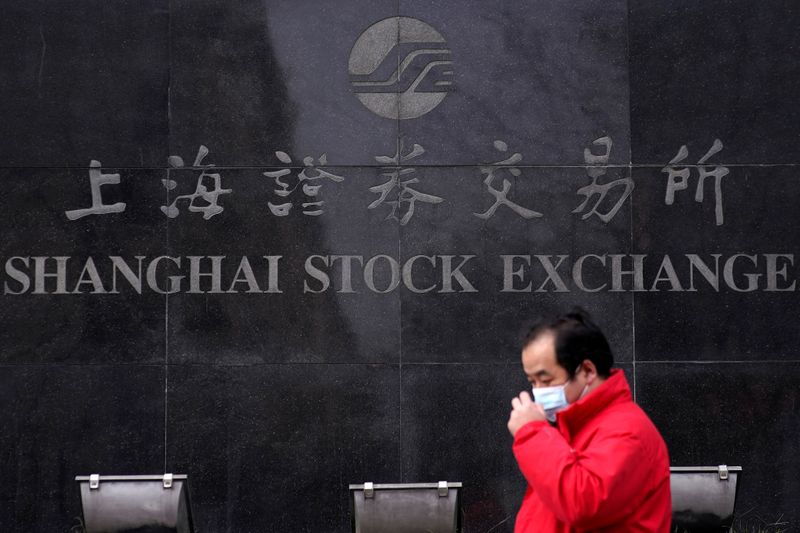
© Reuters
By Ambar Warrick
Investing.com– Chinese stocks fell on Wednesday with technology majors extending losses after the U.S. imposed new export curbs on semiconductor supplies to the country, while South Korean stocks rose after some local firms were exempted from the restrictions.
China’s bluechip index fell 1.6%, while the index shed 1.4%. Chipmaking stocks and companies exposed to the sector saw the deepest declines, after the U.S. last week imposed curbs blocking Chinese companies from access to certain U.S.-made chips.
The White House on Tuesday , mainly offshore companies with operations in China. But the country’s local chipmaking capabilities now appear to be severely hampered by the new restrictions.
Losses in technology stocks spilled over into Hong Kong, with the index plummeting 2.4% to an over 11-year low. Markets also feared potential supply chain disruptions from the U.S. move, considering China’s key role in manufacturing electronics.
On the other hand, South Korea’s index rose 0.3% after the U.S. named two local companies that would be exempt from the new restrictions against China.
Chipmaker SK Hynix Inc (KS:) and tech conglomerate Samsung Electronics Co Ltd (KS:) will be allowed to import U.S.-made chips to their factories in China. The two stocks rose 2.7% and 1%, respectively.
Still, a major interest rate hike by the limited gains in local stocks, as the lender looks to further curb inflation and support the .
Broader Asian markets moved little, as caution kicked in ahead of a swathe of major economic data due this week. Chinese and data due this week is set to shine more light on a potential recovery in Asia’s largest economy.
U.S. inflation readings due and are set to factor into the Federal Reserve’s plans for raising interest rates, and are likely to cause a strong reaction in markets.
Investors will also be watching for more hawkish cues from the of the Fed’s September meeting, due later on Wednesday.
A hawkish Fed has weighed heavily on Asian markets this year, as rising interest rates made risk-driven assets appear less attractive.


Be the first to comment